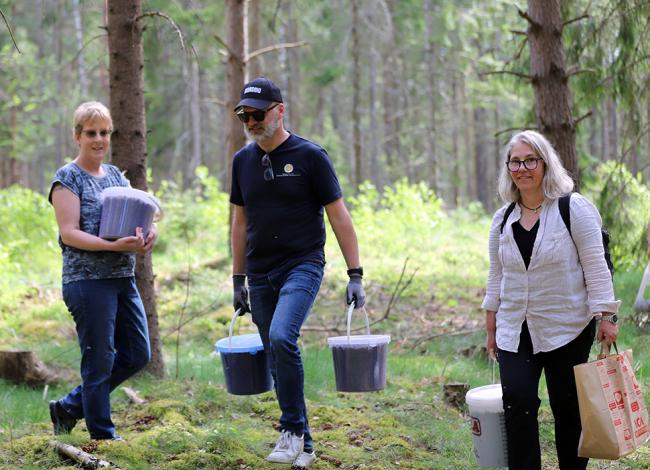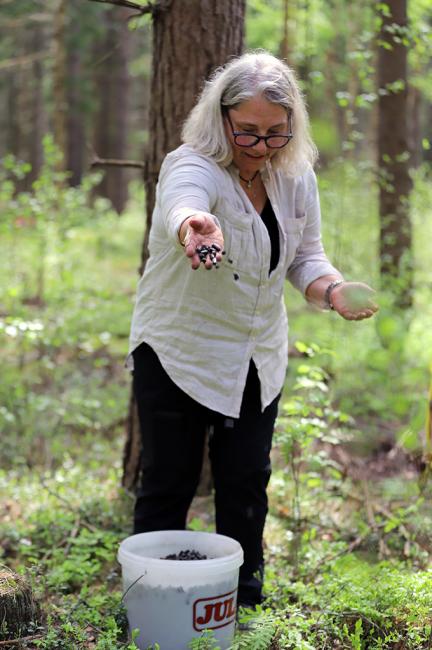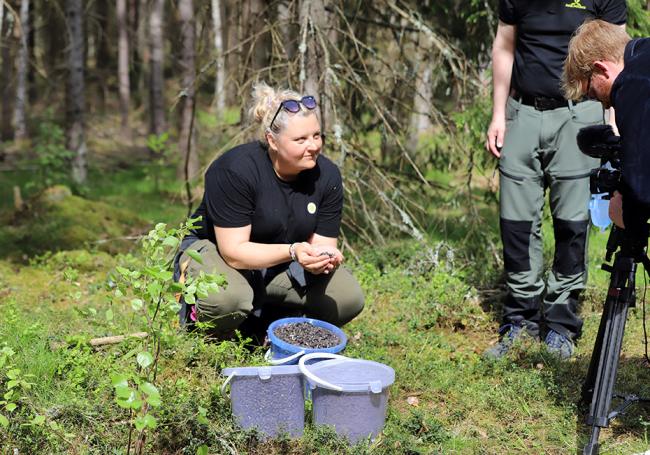Research team tests new circular fertilizer for plants and woodland
2024-05-22The research project is about testing a new type of forest fertilizer, based on nutrient-rich industrial residues from pulp and paper mills. This closes the circle by making use of residual products and returning nutrients to growing plants and woodland.
– Our project group includes several companies, universities and organisations, says Maria Sandberg, docent in Environmental and Energy Systems at Karlstad University. She is also the research leader of the collaborative project behind the development of a new type of fertilizer for growing forests, called enriched hydrocoal.
– Everyone has shown great commitment and are more than willing to contribute and help with the project. Together, we have now carried 1.3 tons of material and spread it by hand over our test areas. All to be able to evaluate the effects in a scientific way. We had a nice and fun day in the forest together, despite mosquitoes and heavy buckets to carry.
Cooperation to reduce the climate and environmental impact
In the project, Karlstad University collaborates with companies to better utilise industrial residues and create new values for both the market and the environment. The idea is also to challenge traditional methods in order to reduce the impact of forestry on the environment and climate.
– It’s about reducing the use of fossil raw materials, making each resource last longer and closing the cycles.
The research team has previously done small-scale experiments. As a next step, they have now spread hydrocoal in the form of pellets on a slightly larger test area. In previous tests, the fertilizer has been used on pine and spruce plants in pots that were later planted in forests in Värmland, with good results.
Research is conducted at Karlstad University as part of the research environment Pro2BE, Processes and Products for a Circular Bioeconomy. Pro2BE is focused on research and education related to the transition to a bioeconomy based on sustainable and eco-friendly renewable resources. Another focus area is the development of the forest industry.
The collaborative project Skogliga resurser i cirkulära system is financed by the Swedish Energy Agency, Vinnova and Formas via the strategic innovation programme RE:Source. Under the leadership of Karlstad University, the project is conducted in collaboration with the Swedish University of Agricultural Sciences (SLU), Paper Province and the Swedish Forest Agency, as well as the companies Stora Enso, C-Green, Econova and MEWAB.






